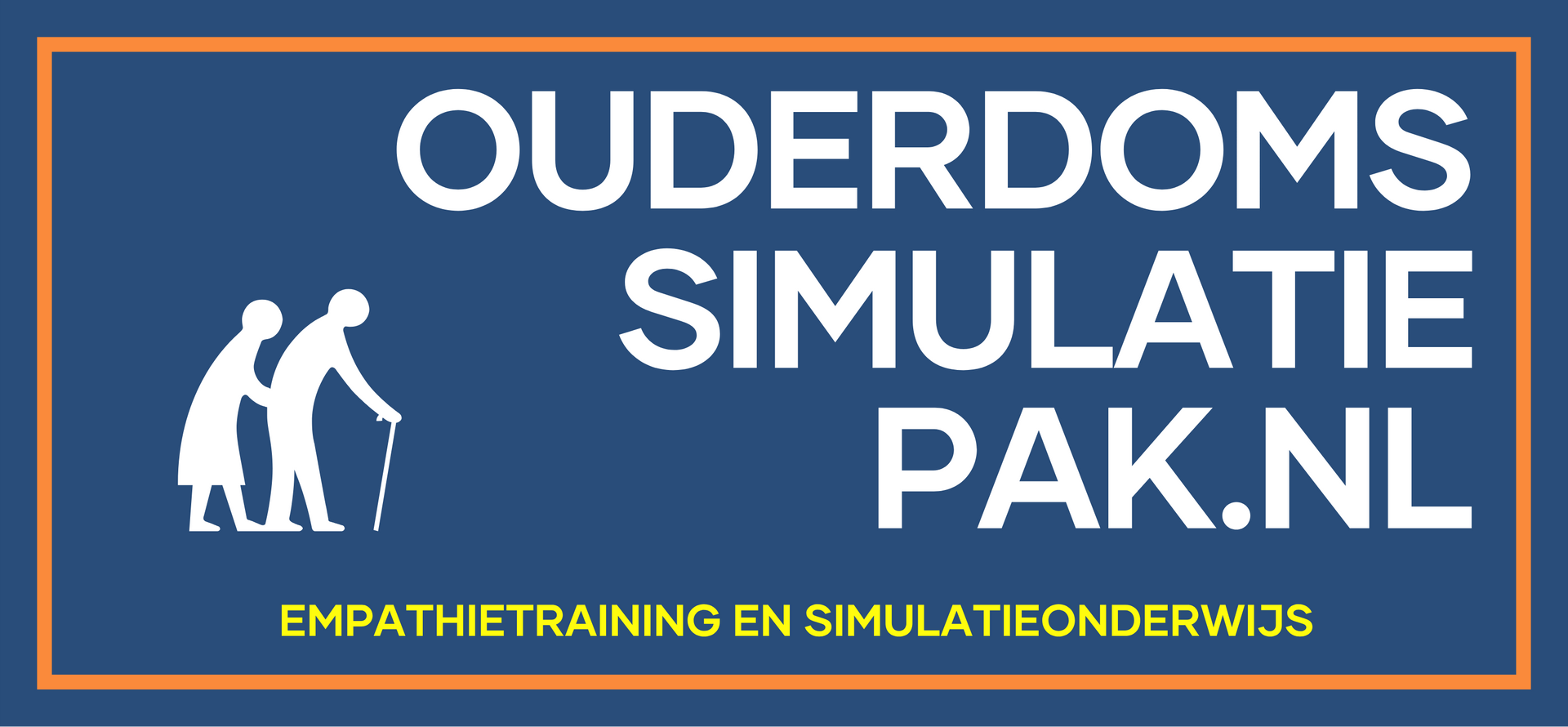References
Scientific basis for OSPs
Age Simulation Suits (OSSs) were developed based on extensive scientific research into the challenges of ageing. Studies show that these simulations are effective in increasing empathy and breaking down stereotypes about older people. Research among healthcare professionals and students shows that OSPs contribute to a deeper understanding of the physical and emotional limitations of older people. This makes the suits an indispensable tool in educational and professional contexts. Science thus emphasises the importance of experiential learning in increasing understanding and inclusion.
Sources on demographic change
In addition to information about the OSPs, we also share research on demographic developments in the Netherlands. Sources such as Statistics Netherlands (CBS) emphasize the urgent need to be prepared for an aging society. These sources provide context for the challenges we face, such as staff shortages in healthcare and the increase in chronic diseases. With these insights, we can work on solutions in a targeted manner. OSPs play a crucial role in this by promoting awareness and empathy.
Demographic challenges in 2040
Gray pressure
More and more people aged 65 and over compared to 20-65 year olds. In 2040, only 52% of the
population in the productive age group.
Demographic pressure
In 2018 this was 69.5%; the forecast for 2040 is 91.2%, with 92 non-productive people per 100 productive people.
The gray pressure, which is the ratio between people aged 65 and over and the productive age group (20-65 years)
reflects, plays a major role in the rising demographic pressure, which is expected to occur in 2040
will amount to 91.2%.
These figures highlight the challenges of an ageing society. Using an ageing simulation suit helps to make this abstract pressure tangible by allowing the physical and cognitive limitations of the elderly to be experienced. This promotes empathy and understanding for the needs and limitations of the growing group of people aged 65 and over.
Source: Statistics Netherlands (CBS)
Relevant reports and case studies
On our website you will find links to reports and research that further substantiate the effectiveness of OSPs. Case studies show how simulations are applied in various sectors, from healthcare education to policy development. These reports provide insight into how OSPs positively impact attitudes and behaviors towards older people. They also show how simulations contribute to better cooperation between generations. These resources provide valuable inspiration for organizations and educational institutions that deal with an aging population.
thing and to promote empathy.
Aging
1
1950
In 1950, the Netherlands had 10,027,000 inhabitants, of which 6.86% were 65 years or older
2
2070
In 2070 the Dutch population will increase to 20,629,000, of which 26.19% will be 65 years or older
Source: Statistics Netherlands (CBS)
Collaboration opportunities
We are open to collaboration with schools, healthcare institutions and policy organizations to increase the impact of OSPs. Our programs can be adapted to specific learning goals and organizational needs. Together we can work on developing innovative trainings and workshops. Contact us to discuss how we can make a difference together. Together we build a future in which older people are approached with understanding and respect.
Contact and support
Do you have questions or would you like more information about our AgingSimulationSuits? Visit our website for additional resources, contact information, and an overview of our services. We are here to support you in implementing simulation programs that foster empathy and understanding. Together, we can make the future of eldercare more inclusive and effective. Contact us today to explore your options.
Pioneering Work in Health Care Education: The Development of the OSP
As a Physiotherapy lecturer at the HvA, an epidemiologist and a pioneer in innovative healthcare education, I have carefully designed and tested every component of the Age Simulation Suit (OSP) together with colleagues and students. Our dedicated team worked closely together to create a unique learning experience that allows participants to experience age-related ailments and chronic diseases in a lifelike manner. Through our own innovation journey, we have not only developed an Age Simulation Suit (OSP), but have also collected valuable feedback from the first 80 participants. This feedback has helped us to continuously improve the OSP and adapt it to the needs of our students/participants. We are proud of the result of our work and remain committed to developing high-quality educational tools that have a positive impact on healthcare, education and beyond.



